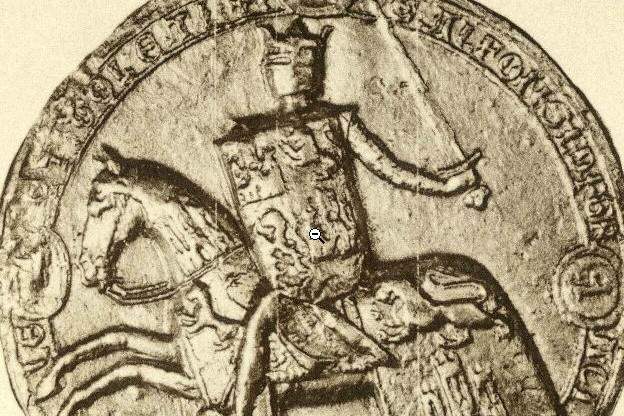
Many kings have been patrons of the arts and music, but some took it one step further and not only championed music in their courts, they composed it as well.
Leopold I
You'd think that kings with all their royal duties might be too busy to have side careers as composers. Holy Roman Emperor Leopold I certainly had his hands full. During his reign, the emperor faced the 1683 Ottoman siege of Vienna, French invasions on the western territorial fronts, religious conflicts fueled by the Counter-Reformation, not to mention an outbreak of the plague!
Despite all this turmoil, Leopold, who as a child was given violin, harpsichord, recorder and composition lessons, maintained a love for music and cultivated a vibrant musical establishment during his reign.
Leopold was a versatile composer, writing operas, instrumental music, masses, oratorios and a requiem-some 69 works attributed to him still survive. Here's a sampling of the Emperor's music: first, we'll listen to an instrumental sonata, followed by a setting of Psalm 98 in a truly regal fashion.
Henry VIII
The renaissance king Henry VIII is probably better known for his many wives than for his many compositions! But Henry's love of music is reflected by the large number of musicians he employed, and also by his impressive collection of instruments. Henry himself sang and played the keyboard and lute, and he also wrote a number of ballads, love songs, and instrumental consort music.
Alfonso X 'El Sabio'
The 13th-century Spanish monarch Alfonso X, King of Castile, was a composer-king most famous for his Cantigas de Santa MarÃa, a remarkable collection of over 400 songs dedicated to the Virgin Mary. Compiled between 1270 and 1290 with beautiful notation and gorgeous illuminations, King Alfonso probably supervised the creation of this collection of medieval song, though it's also likely that he contributed pieces of his own.
The collection contains two types of cantigas: hymns to Mary and narratives that emphasize her miraculous ability to swoop in and remedy a situation just in the nick of time! Cantiga 249 tells the story of a worker who by Mary's miraculous intervention comes out unscathed after a frightening fall, while Cantiga 250 is a hymn offering praise and adoration to Mary.
Frederick the Great
Besides acting as heads of state, leading military campaigns, or forming political alliances, many kings in history also had the knack for writing a good tune! Would it surprise you to know that Frederick the Great was one such king?
Frederick loved music, and was an accomplished flute player, as well as composer. He employed many of the best musicians of the day in his court, including Benda, Quantz, Graun, Hasse and Carl Philipp Emmanuel Bach, and he frequently hosted evening chamber music concerts. The King himself participated in these parties, often performing flute concertos or sonatas that he had written.
King Frederick was a prolific composer for the flute-over 100 of his sonatas have survived-but the King also deserves credit for the tune that was the seed for J.S. Bach's monumental work, the Musical Offering.
As the story goes, in 1747 Frederick summoned Bach to his court. Upon arrival, the King played a theme for Bach.
To the King's great delight, Bach began improvising on the theme at the keyboard.
Returning home to Leipzig, Bach immediately started writing his Musical Offering. The set of pieces, dedicated to Frederick the Great, was based entirely on the King's royal theme, which Bach wove into various sonata movements, canons, and ricercares.
Let's hear a ricercar for harpsichord, a 3 voiced fugue composed on the King's theme. We might well imagine that it was a piece like this that Bach improvised on the spot for King Frederick while visiting him at his court.
Featured release: Music of Thibaut de Champagne, King of Navarre
Our featured recording is a 2012 release from the AEON label of music by Thibaut de Champagne performed by the ensemble Alla Francesca.
Not only a musician, Thibaut de Champagne, was a powerful political force during his time, and after his uncle died in 1234, Thibaut himself became King of Navarre.
Over 60 songs of Thibaut survive, including love songs, crusade songs, pastorals, hymns to the Virgin Mary and other religious works. Many of these pieces are collected in a 13th-century manuscript now housed in Paris that has come to be known as The King's Songbook.
First, let's listen to a type of composition called tenson, a story about love told in dialogue form. After that, we'll hear an anonymous instrumental piece also notated in The King's Songbook.









